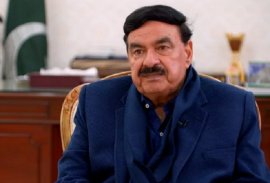
If all this is true, then how come we have provincial governors, State Bank of Pakistan governors, heads of political parties and a large number of senior bureaucrats, who are dual nationals and continue to hold positions of great national importance. The Supreme Court judgment has established an important principle. Dual nationals cannot be trusted on matters that have significant implications for the state of Pakistan. If that is the case, could we ask the Supreme Court to take a suo-motu notice and disqualify all government servants, governors and heads of political parties, who hold dual nationalities, from the positions they currently hold? It makes no sense to stop an ordinary dual nationality petitioner from even taking up an important issue, while allowing the ruling elite with similar dual nationalities to rule Pakistan. One also hopes that the ECP will receive strength from the Supreme Court’s judgment and will find a foolproof method to filter out dual nationals from the forthcoming elections.
Naeem Sadiq
Published in The Express Tribune, February 16th, 2013.

1717587923-0/jake-paul-vs-mike-tyson-(1)1717587923-0-165x106.webp)


1725443747-0/Untitled-design-(5)1725443747-0-165x106.webp)




1731740253-0/BeFunk_§_]_-(21)1731740253-0.jpg)







COMMENTS
Comments are moderated and generally will be posted if they are on-topic and not abusive.
For more information, please see our Comments FAQ